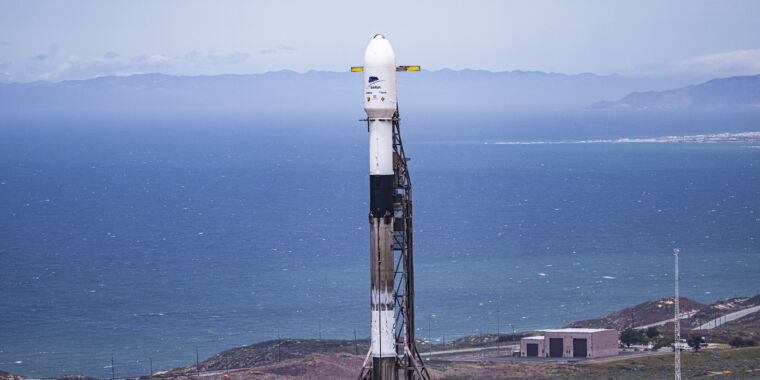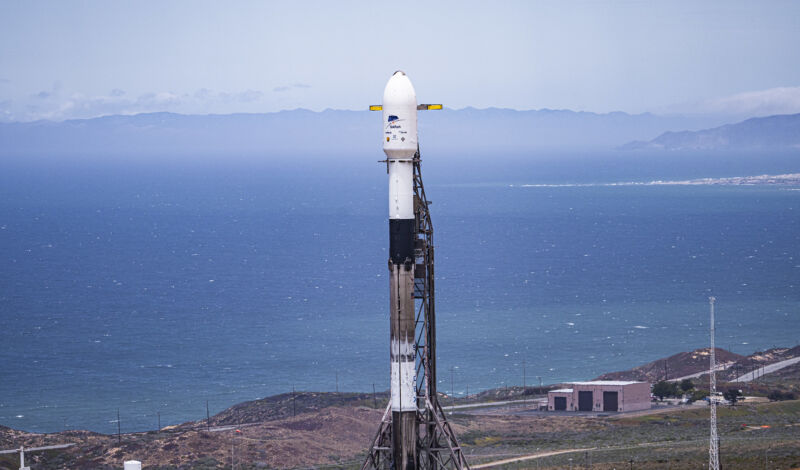Two of the German military’s new spy satellites appear to have failed in orbit


Enlarge / The SARah-1 mission is seen on the launch pad in June 2022.
SpaceX
On the day before Christmas last year, a Falcon 9 rocket launched from California and put two spy satellites into low-Earth orbit for the armed forces of Germany, which are collectively called the Bundeswehr.
Initially, the mission appeared successful. The German satellite manufacturer, OHB, declared that the two satellites were “safely in orbit.” The addition of the two SARah satellites completed a next-generation constellation of three reconnaissance satellites, the company said.
However, six months later, the two satellites have yet to become operational. According to the German publication Der Spiegel, the antennas on the satellites cannot be unfolded. Engineers with OHB have tried to resolve the issue by resetting the flight software, performing maneuvers to vibrate or shake the antennas loose, and more to no avail.
As a result, last week, German lawmakers were informed that the two new satellites will probably not go into operation as planned.
Saving SARah
The three-satellite constellation known as SARah—the SAR is a reference to the synthetic aperture radar capability of the satellites—was ordered in 2013 at a cost of $800 million. The first of the three satellites, SARah 1, launched in June 2022 on a Falcon 9 rocket. This satellite was built by Airbus in southern Germany, and it has since gone into operation without any problems.
The two smaller satellites built by OHB, flying with passive synthetic aperture radar reflectors, were intended to complement the SARah 1 satellite, which carries an active phased-array radar antenna.
“The new SARah satellites ensure that the Bundeswehr has the capability for worldwide imaging reconnaissance independent of the time of day or the weather,” the German military said at the time of the SARah 1 satellite launch. “At the same time, they provide support in the early detection and management of crises.”
This new constellation was intended to replace an aging fleet of similar, though less capable satellites, known as SAR-Lupe. This five-satellite constellation launched nearly two decades ago.
OHB said to be at fault
According to the Der Spiegel report, the Bundeswehr says the two SARah satellites built by OHB remain the property of the German company and would only be turned over to the military once they were operational. As a result, the military says OHB will be responsible for building two replacement satellites.
Shockingly, the German publication says that its sources indicated OBH did not fully test the functionality and deployment of the satellite antennas on the ground. This could not be confirmed.
This setback comes as OHB is attempting to complete a deal to go private—the investment firm KKR is planning to acquire the German space company. OHB officials said they initiated the effort to go private late last year because public markets had “structurally undervalued” the company.
OHB has its hands in many different space businesses in Europe. The small launch firm Rocket Factory Augsburg was spun out of OHB in 2018 and is working toward its debut launch later this year or in 2025. The company is also a supplier for the larger Ariane 6 rocket and one of several private companies that is part of a coalition bidding to build a Starlink-like satellite constellation for the European Union known as IRIS2.


